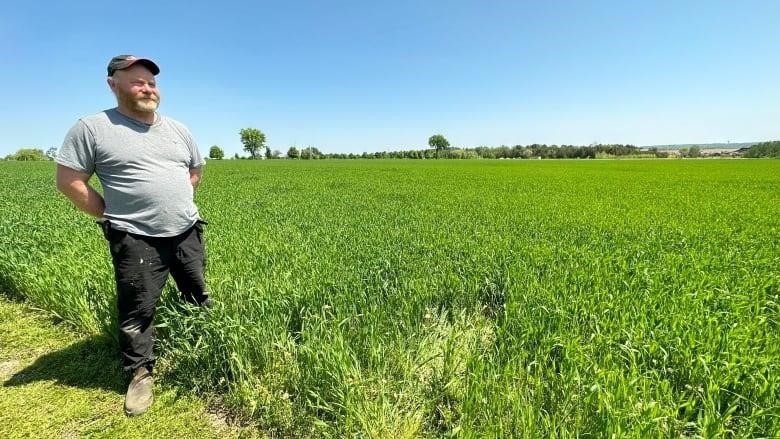
Agribusiness is worried about a plan to build more houses on farmland in Ontario
CBC News has learned that Premier Doug Ford’s government is thinking about giving up on plans that would let more housing be built on Ontario’s shrinking farmland. This is because of pressure from farmers.
Last week, leaders of a number of farming and agricultural groups met with high-level government officials to voice their concerns about proposed changes to the province’s land-use policy. Ford and his ministers have said that these changes will make more people want to build new homes.
Part of the government’s plan includes controversial ideas.Changes to how land is used in OntarioSteve Clark, the Minister of Municipal Affairs and Housing, brought up the idea last month. Clark was in charge at the time.His plan was called “housing-focused.”And said it would make both cities and rural areas have more homes.
In a letter that CBC News got on Monday, Clark told the Ontario Federation of Agriculture that he “clearly heard the concerns” and that he would “look at alternatives” to the changes he had proposed.
Farmers say that the plans as they stand now could lead to hundreds of thousands of homes being built on good farmland.
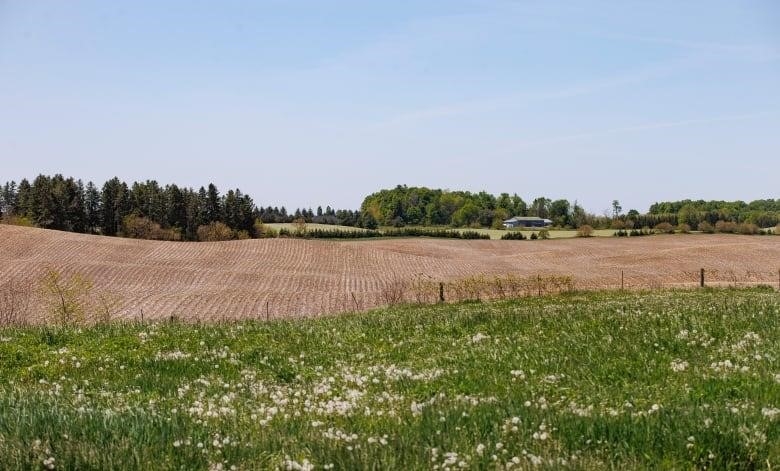
Mark Reusser, a turkey farmer in Wilmot Township, which is less than 10 minutes from the western edge of Kitchener, said, “That’s a lot of city people moving to the country and having to deal with farming problems they’re not used to.”
Reusser says that farmers worry that putting more homes on farms or next to them will cause problems with new residents who don’t farm because of the smell, dust, and noise that come with raising animals or growing crops.
“Agriculture works better when it is a little bit away from people,” Reusser said in an interview on his farm. “This is especially true for people who are from cities and aren’t used to these things.”
“We’re also worried that building houses on farmland might not be the best way to use it,” he said. “It will never be farmland again once there’s a house on it.”
Fears that farm families won’t be able to keep their home
The most controversial change would let people who own farmland cut up each farm parcel into up to three housing lots. This is called “severance.”
Ford and Clark said that they want to make it easier for farmers to build houses on their land for their adult children.
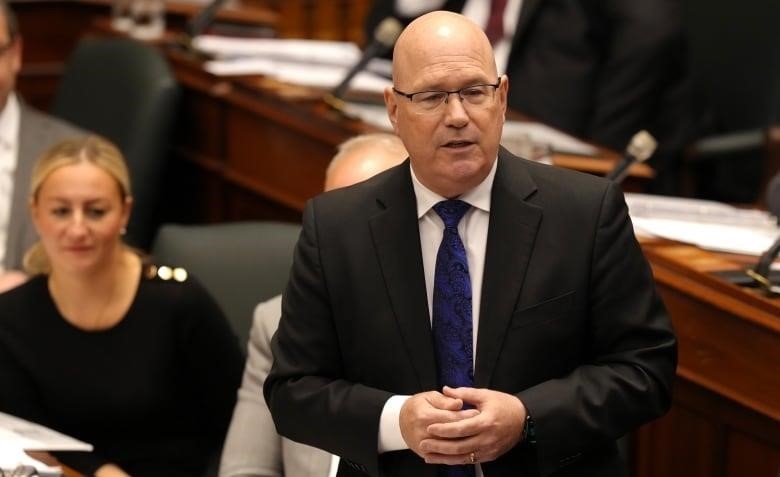
Ford told the legislature on Monday, “The number one complaint I hear from farmers is, ‘I want my kids to stay on the farm,’ and there are some places where you can’t build an extra house.”
“It has never been our plan to give or sell split lots to people who don’t own a family farm or ranch,” Clark said in a letter he sent Monday. “Any confusion about our plans will be cleared up, taken care of, and solved.”
People who work in agriculture say that the problem with the policy as it is now is that there is no way to make sure that these homes stay with farming families. They also say that it would raise the market price of farmland, which would encourage more farmers to sell off housing lots to make money and reduce the amount of land available for farming.
“I don’t think it’s a very good idea,” said Zac Cohoon, whose family farm near Port Perry in Durham Region grows corn, soybeans, and wheat.
Cohoon said in an interview, “It doesn’t make a lot of sense to move housing into a rural area when we have cities that are well-served and can handle public transportation, sewage disposal, and water.”
Cohoon says that the way things are planned right now is already “destroying some of the best farmland in Ontario and Canada for housing.”
He says that new wells and septic systems would put stress on farm ecosystems if more homes were built in agricultural areas.
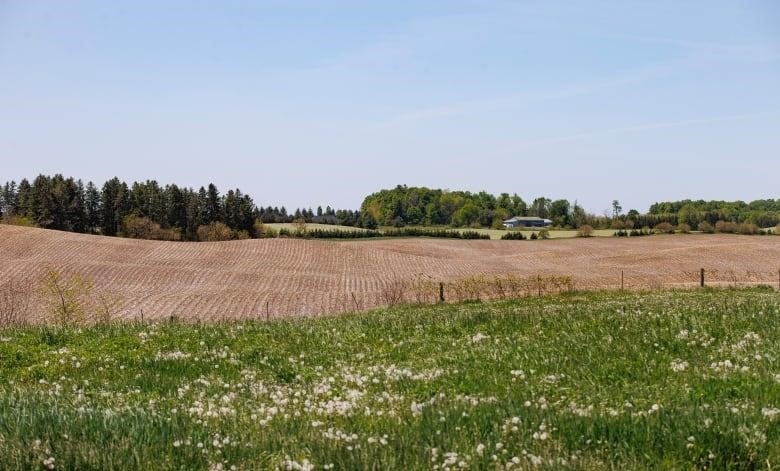
In 25 years, a quarter of Ontario’s farmland could be gone
From 2016 to 2021, Ontario lost more than 580,000 acres of land that could have been used for farming.Statistics Canada says thatIf things keep going like this, 25% of the province’s farmland will be gone in 25 years.
Cohoon says that it would be a much better solution to put homes on unused land near cities, close to services that can handle more people.
“Building houses on farmland doesn’t solve the problem; all it does is spread it out,” he said.
By 2032, the Ford government wants to see 1.5 million new homes built in Ontario. The plans that have made farmers angry areAlready out for public comment.Clark announced on Monday that the consultation period, which was supposed to end next week, would be extended until early August.
The proposals made the province’s biggest farming groups work together in a way that doesn’t happen very often. The groups that represent beef, chicken, dairy, egg, pork, sheep, turkey, and veal producers joined the Ontario Federation of Agriculture, the Christian Farmers Federation of Ontario, and the National Farmers Union in opposing the planned changes to land-use policy.
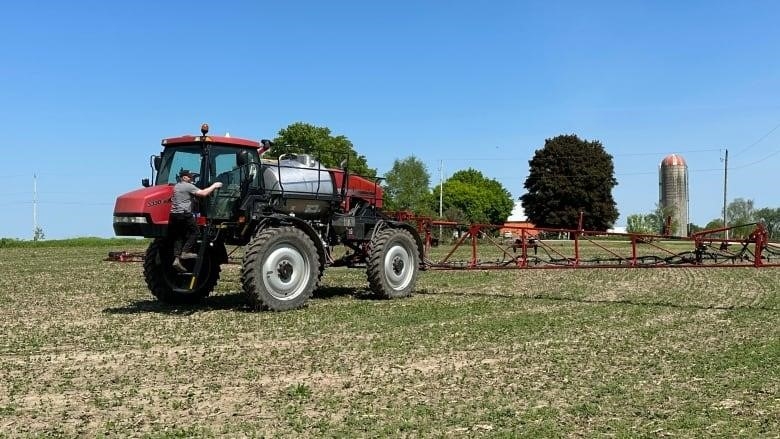
“We do not support policies that will increase the creation of residential lots in prime agricultural areas or in rural areas that are actively farmed,” they said in a joint statement on May 19.
“Ontario has some of the richest and most fertile farmland in Canada, and these policy changes make it very likely that this land and the food system it supports won’t be able to stay that way for long.”
While that statement came from the organizations representing farmers, individual farmers like Cohoon and Reusser wanted to speak out too.
“Farmers, like everyone, recognize that there’s a need to find places for people to live,” said Reusser. “It shouldn’t be on farmland, it should be somewhere else. The ability of a country to feed itself is incredibly important.”
Still, Reusser says he’s encouraged by the signs that the Ford government is willing to reconsider its plan.
“I’m looking forward to working with the government … and finding a way to accommodate a place for people to live and protect the business of agriculture at the same time,” he said. “I think that’s a doable thing.”
